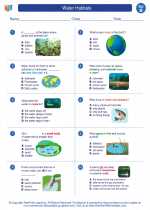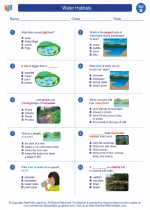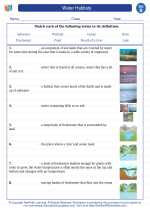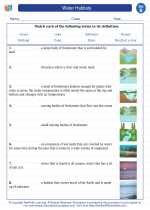Blood
Blood is a specialized bodily fluid that is essential for transporting nutrients, oxygen, carbon dioxide, and other waste products throughout the body. It is composed of several different components, including red blood cells, white blood cells, platelets, and plasma.
Components of Blood:
- Red Blood Cells (RBCs): These cells are responsible for carrying oxygen from the lungs to the rest of the body and carbon dioxide from the body to the lungs.
- White Blood Cells (WBCs): These cells are part of the immune system and help the body fight off infections and diseases.
- Platelets: These cell fragments are involved in the blood clotting process, which helps to stop bleeding when a blood vessel is injured.
- Plasma: This is the liquid component of blood, which contains water, electrolytes, proteins, hormones, and waste products.
Functions of Blood:
Some of the key functions of blood include:
- Transporting oxygen and nutrients to cells
- Removing waste products, such as carbon dioxide, from the body
- Regulating body temperature
- Protecting the body against infections
- Assisting in the clotting process to prevent excessive bleeding
Study Guide:
Here are some key points to remember about blood:
- What are the main components of blood?
- What is the function of red blood cells?
- How do white blood cells contribute to the body's defense system?
- What role do platelets play in the blood clotting process?
- What is plasma and what does it contain?
- What are the main functions of blood in the body?
Understanding the composition and functions of blood is crucial for understanding how the circulatory system works and how the body maintains homeostasis.
.◂Science Worksheets and Study Guides Second Grade. Water Habitats
Study Guide Water Habitats
Water Habitats  Activity Lesson
Activity Lesson Water Habitats
Water Habitats  Worksheet/Answer key
Worksheet/Answer key Water Habitats
Water Habitats  Worksheet/Answer key
Worksheet/Answer key Water Habitats
Water Habitats  Worksheet/Answer key
Worksheet/Answer key Water Habitats
Water Habitats  Worksheet/Answer key
Worksheet/Answer key Water Habitats
Water Habitats  Vocabulary/Answer key
Vocabulary/Answer key Water Habitats
Water Habitats  Vocabulary/Answer key
Vocabulary/Answer key Water Habitats
Water Habitats 

 Activity Lesson
Activity Lesson
 Worksheet/Answer key
Worksheet/Answer key
 Worksheet/Answer key
Worksheet/Answer key
 Worksheet/Answer key
Worksheet/Answer key
 Worksheet/Answer key
Worksheet/Answer key
 Vocabulary/Answer key
Vocabulary/Answer key
 Vocabulary/Answer key
Vocabulary/Answer key

The resources above cover the following skills:
LIFE SCIENCE (NGSS)
Biological Evolution: Unity and Diversity
Students who demonstrate understanding can:
Make observations of plants and animals to compare the diversity of life in different habitats[Clarification Statement: Emphasis is on the diversity of living things in each of a variety of different habitats.] [Assessment Boundary: Assessment does not include specific animal and plant names in specific habitats.]